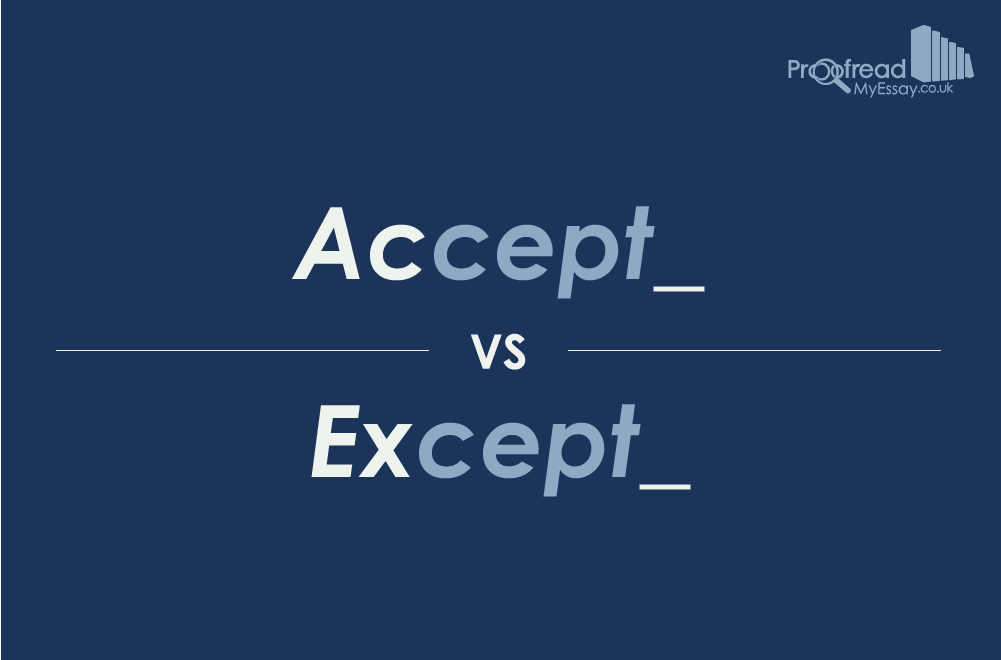Many English words can seem confusing to those learning the language, but even native speakers sometimes get accept and except mixed up. This is because they sound similar, so despite differing in spelling it isn’t always obvious which you should use when writing.
Yet the distinction is an important one, as accept and except have very different meanings. And since you’re likely to encounter both words fairly frequently, it’s worth familiarizing yourself with how they are used.
What Does “Accept” Mean?
The word “accept” typically means “admit” or “receive something willingly.” In the former case it means to understand something as true. For example:
In terms of receiving something willingly, meanwhile, “accept” can refer to either tangible things:
Or it can be used with more abstract things:
In addition, “accept” can also mean to say “yes” to something:
Find this useful?
Subscribe to our newsletter and get writing tips from our editors straight to your inbox.
The common factor in all of these cases is consenting to something.
What Does “Except” Mean?
The term “except” means “apart from” or “excluding.” Usually, it’s a preposition indicating that something is excluded from a general statement. Take this famous example from Oscar Wilde:
You can also use “except” as a conjunction meaning “but”:
Accept or Except?
So, how to remember which of accept or except to use in any given situation? It can help to focus on the start of these words, especially “except”: the “ex-” at the beginning of “except” is the same as at the start of “exclude,” which makes it easier to remember that “except” means “to leave out” or “other than.”
Hopefully this guide has helped you to understand the difference between accept and except. And don’t forget that further advice on vocabulary can be found in the word choice archive section of our academic blog.



